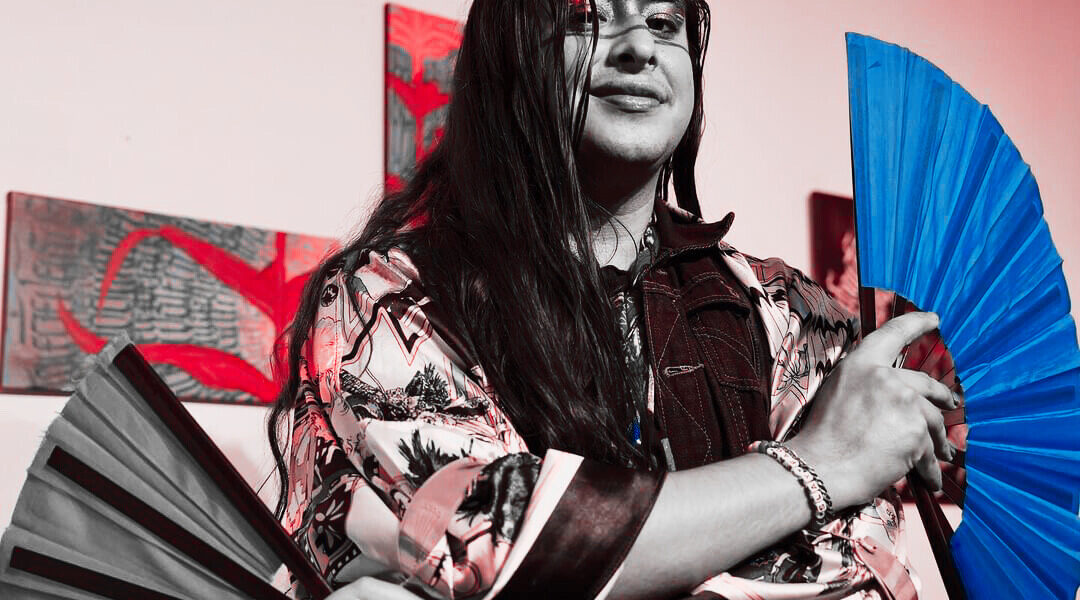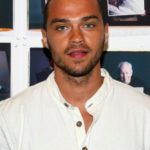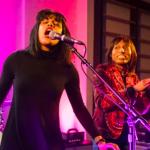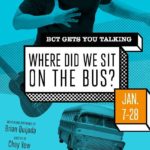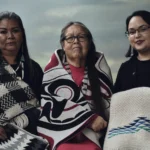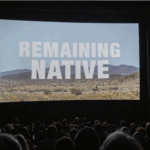dk echo-hawk, Pawnee citizen and adopted Athabascan, comedian, musician, DJ, writer, visual artist, host and founder of Indigik’were builds community through bold art and joyful rebellion.
Part five of a five-part series in collaboration with the Museum of Pop Culture, with grant funding from 4culture.
In a corner of Seattle where laughter meets resistance and rhythm becomes ritual, a star arose. Their name is dk echo-hawk, but you can also call them by their stage name — the evening star. A celestial being, more closely related to a mountain than a pronoun, but they will accept they, them, she and her. The little Athabascan and Pawnee kid playing in the woods in Alaska has grown into a comedian, musician, DJ, writer, visual artist, host and founder of Indigik’were, formerly known as Indigequeer.
As a kid they grew up as an Ahtna Athabascan between a small Mendaesde village and their school in Delta Junction, Alaska. There was joy, and there was a lot of grief carried through generational trauma, according to echo-hawk. During the Native boarding school era government agents forcibly abducted Native children and sent them to what they called “boarding schools” hundreds of miles away to places where physical, sexual, cultural and spiritual abuse and neglect were experienced in an effort to “kill the Indian, save the man” from 1891 until 1978. The generational impact on the mental and spiritual health of of those who experienced the cultural genocide of the “boarding schools” has often resulted in addiction and high suicide rates among them and their descendants all across Native country.
In a chat in June 2023 with Joey Clift about Native comedy, echo-hawk explained that their favorite Native comedy is “the thing that my auntie would say at probably a funeral that was the most inappropriate thing you ever heard but you were weeping 10 seconds before that. Now, you’re laughing as hard as you possibly can.”
Clift is an award-winning comedy writer and Cowlitz Indian Tribe citizen.
“I admired the aunties who make people laugh after crying because that’s what I wanted to do,” echo-hawk told MoPOP + RIZE.
He went on to explain that understanding and making the people around him laugh wasn’t just natural for the aunties, it was something that lifted their entire community culturally.
“Performing in the village is like culture,” echo-hawk said. “You don’t do it for money, you just do it because you and your hundred friends need to have a good night, and it’s 40 below outside.”
When echo-hawk began getting paid for their comedy in Seattle, they held a mirror up to the world and did not hold back. The history and ongoing genocidal actions against Native people were reflected back to the audience. The style of comedy that echo-hawk became known for, was coined “punish comedy.”
While it was satisfying to watch white Seattlites squirm during their sets, echo-hawk said that comedy in this format became difficult for their mental health.
“I got kind of famous real fast and I was not ready,” echo-hawk said. “I am thankful that somewhere in my head I consciously knew that if I pursued this, I might die. I just felt very ungrounded and was falling apart and thankfully had some wherewithal to not do that. But I do understand that it was really empowering. I’m ultimately very impressed with what I was able to do.”
Comedy has been both a weapon and salve. A method of navigating a world on fire and pulling others through with a glittery wink and a red rose colored grin. They pivoted to focus on Indigik’were and their music.
“It is hilarious, it’s silly, it’s sexy,” echohawk said of Indigik’were. “There’s mistakes, there’s mirrors on stage, and I change on stage, and there’s altars, and roses, and cheese whiz.”
Indigik’were started in 2022 because echo-hawk wanted a place to feel free to be their authentic self. The first Indigik’were event invited attendees to, “shake their asses like Columbus never sailed the ocean blue,” and has continued to showcase queer and trans Indigenous joy through their events. It has brought Native people who were also in need of community joy together and has had a larger impact than echo-hawk ever imagined.
“People have told me that the spaces I bring are healing and helped them when they were suicidal or helped them when they had been assaulted and helped them find community and family,” echo-hawk said. “But when it was starting to happen, I was still just a deeply traumatized kid, and that felt like so much responsibility. I didn’t want to be a leader. I just wanted to have a village again.”
And that’s exactly what they began building.
Comedy is naturally interwoven into the event planning for Indigik’were in a way that could only come from the evening star, including celebrating the anniversary of the death of U.S. Cavalry commander George Armstrong Custer. Custer launched a surprise attack against an encampment of Sioux, Cheyenne and Arapaho along the Little Bighorn River in 1876 and was struck down by a Cheyenne woman. echo-hawk’s celebration of the death of Custer included a piñata with Custer’s likeness.
“I went to the Battle of the Little Bighorn Reenactment when I was f*cking 13 or something on the road to f*cking Oklahoma and was like, ‘Yeah, b*tch!’” echo-hawk said. “My dad, my big Native dad and me were cheering as Custer got killed. That’s just the kind of Native that I am.”
“It’s just ingrained in my being to celebrate the death of colonizers always,” echo-hawk continued. “…and I found that humor is the best way to keep a crowd happy and moving and to feel like they’re in good hands. Being a host is probably my strongest quality.”
If you’ve ever been to any of their comedy or Indigik’were events, you’d likely agree. There is always an elaborate storytelling element that shocks, disarms and gets you laughing.
“There’s active genocides all over the place,” echo-hawk said. “There are people who are just trying to recover from those genocides, witnessing other genocides. There are people who went through a genocide, now genocideing. There’s all sorts of wild things happening. I don’t know how everybody else is processing it without doing crazy things like I’m doing. [Indigik’were] is somatics for me, it’s spiritual. It is deeply important to me.”
echo-hawk encourages others to also discover what truly ignites their passion and defiant spirit, something deeply personal and entirely their own — to do what makes you feel free.
“Every day I get to wake up and ask myself, what would the evening star like to look like today?,” echo-hawk said. “How would I like to be free today? What would I like to try? And the more and more I do that, the more and more I dance, the more and more I sweat, the more I eat healthy and the more and more I don’t have to block out parts of life. I have enough space in myself to feel and I highly recommend it. It’s doable. It’s not easy all the time, but it is doable. I promise you.”
the evening star’s next appearance is called Hot Wet Native Summer in Juneau, Alaska for the Lingit AANI Pride Festival. “As many in this world continue to fight against the beautiful path we are on, it is vital that we come together and show each other our beauty and our strength, to be a testament that we are unconquered!,” an Instagram post shares.
The full length interview can be found here. The interviews were video and audio recorded and saved in the MoPop Online Collections Vault with over 1,000 others.
Editor’s note: In collaboration with MoPop for their “WA Untold Pop Culture Stories” series, MoPop wanted to focus on the stories of King County pop culture creators in order to ensure that a more accurate representation of culture artists in America are preserved for future generations.
RIZE came to this project hoping to bring varying Indigenous stories, identities and perspectives to the forefront. Oral histories are traditionally how many Indigenous people have passed down culture, customs, and tradition. Through this series, we explore pop culture voices of Indigenous creators in what is now Washington state.
![]()

